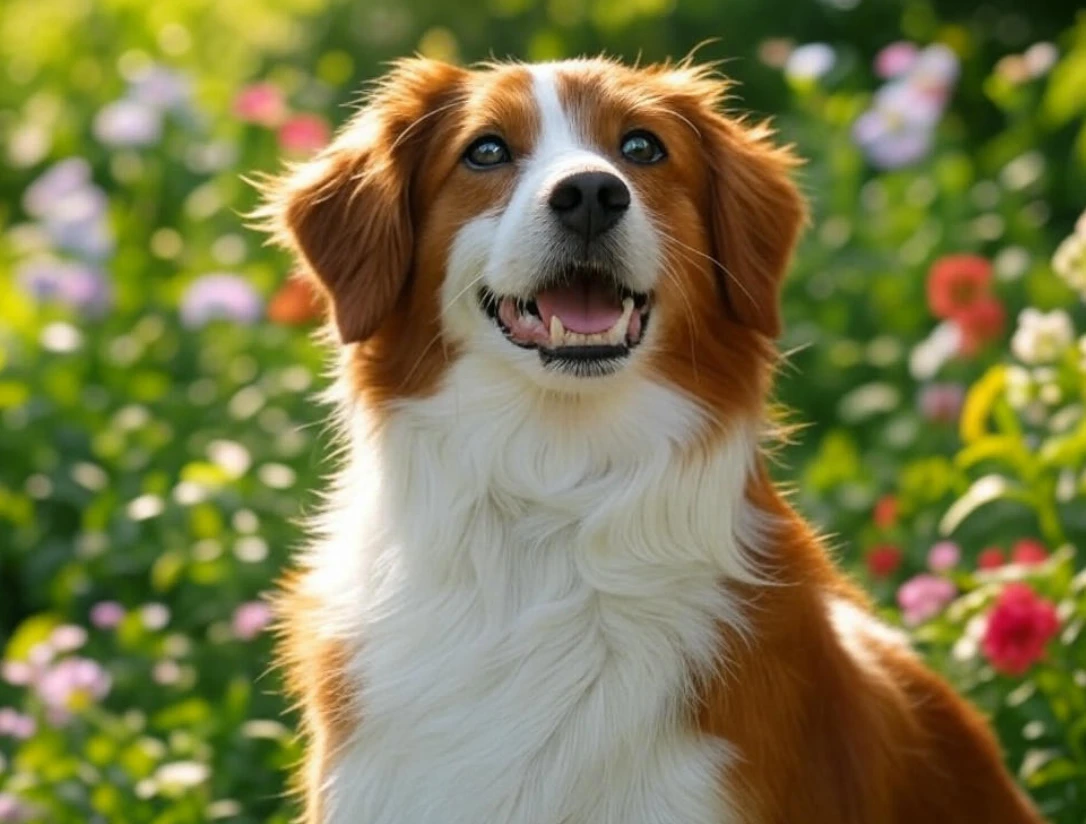
The Brittany, a spirited and intelligent hunting dog, hails from the Brittany region of northwestern France, where it was refined between the 17th and 19th centuries. This compact, muscular dog was bred for pointing and retrieving game, especially birds. Agile and enduring, Brittanys were developed to cover large distances quickly and efficiently, making them highly sought after by hunters seeking a versatile and reliable field companion.
The breed’s legacy is rich—paintings over 400 years old depict orange and white dogs in field work, bearing a striking resemblance to today’s Brittanys. Official recognition by the American Kennel Club (AKC) came in 1934 under the name “Brittany Spaniel,” but this was later changed to simply “Brittany,” as their characteristics aligned more with pointing breeds than flushing spaniels.
Physically, the Brittany is both elegant and strong. Males and females typically stand between 17.5 to 20.5 inches at the shoulder and weigh 30 to 40 pounds. Their frame is well-balanced: square in proportion, with a body as long as it is tall. The chest is deep, reaching to the elbows, with slightly convex ribs and a short, firm back. The head features a well-defined stop, with a muzzle two-thirds the length of the skull. Ears are floppy, triangular, and high-set, covered in soft, short hair. Their eyes are dark and expressive, ranging from dark brown to amber, always alert and intelligent.
The coat is one of the breed's hallmarks—medium-length, dense, and either straight or slightly wavy, but never curly. Colors vary, with orange and white or liver and white being most common in American Brittanys. Some dogs may also exhibit a tri-color mix of liver, orange, and white, which is also accepted by the AKC. Their tail is typically docked to about 4 inches, although some are born naturally bobtailed.
The Brittany is loved not only for its hunting abilities but also for its affectionate, people-oriented nature. These dogs are highly social and prefer to be around their family as much as possible. They form particularly strong bonds with one primary owner but are generally warm with everyone in the household. However, they are not suited for long periods of isolation—separation anxiety can manifest in destructive behaviors if left alone too often.
They’re playful and careful with children, although not natural babysitters. Brittanys typically get along with other household pets—except birds. With their natural hunting instincts, keeping a Brittany around chickens or parakeets might not end well.
Their personality is joyful, optimistic, and full of life. Brittanys are eager to please, making them both fun companions and easy-to-train dogs. However, early socialization is vital to prevent shyness or fearfulness, which may develop if a puppy is not exposed to enough people or stimuli early on.
Training should begin the moment the puppy enters the home. Brittanys are responsive to positive reinforcement and consistency, but will not respond well to shouting or overly harsh corrections. It’s essential that all members of the household enforce the same rules to avoid confusion. These dogs learn quickly, and even if you don’t plan to use them for hunting, basic obedience is a must.
Although they’re highly active, Brittanys are adaptable. They do well in both apartments and detached homes, provided they receive enough physical and mental stimulation. This is not a breed that enjoys lounging around all day—daily walks and interactive play are crucial. A large yard or fenced outdoor space is ideal, especially in warmer months. They also make excellent trail companions for hikers, cyclists, and joggers.
To keep a Brittany looking and feeling its best, regular care is required. Their coat does not mat easily but sheds moderately. Grooming helps reduce loose fur and keeps their skin healthy. Their active lifestyle also means regular checks for dirt, debris, or injuries after outdoor adventures.
Their ears, in particular, need weekly cleaning with wipes or a damp cotton pad, as their droopiness can trap moisture. Teeth should be brushed at least twice a week, or supplemented with dental treats. Like many breeds, Brittanys can be enthusiastic eaters. A structured feeding schedule helps avoid overeating and weight gain.
Diet plays a major role in maintaining their energy and health. Brittanys thrive on both premium dry food and natural diets, but care must be taken to avoid foods that are high in fat or sugar.
Natural diets should be supplemented with vitamins and minerals, especially during the growth phase. Feeding should be divided into two meals per day for adults. Puppies may require three smaller meals spaced throughout the day. Always provide fresh water, especially after exercise.
Brittanys are not only adaptable and athletic but also relatively affordable compared to some other purebred dogs. The average price for a Brittany puppy from a trusted All in Pets partner breeder is around $1,000. However, regional variations apply—some may be priced as low as $300, while top pedigree lines with show potential can command up to $4,500.
If you're looking for a devoted, intelligent, and energetic companion, the Brittany might be the perfect fit. With the right mix of exercise, socialization, and love, this French-born pointer will reward you with a lifetime of loyalty, adventure, and joyful companionship.